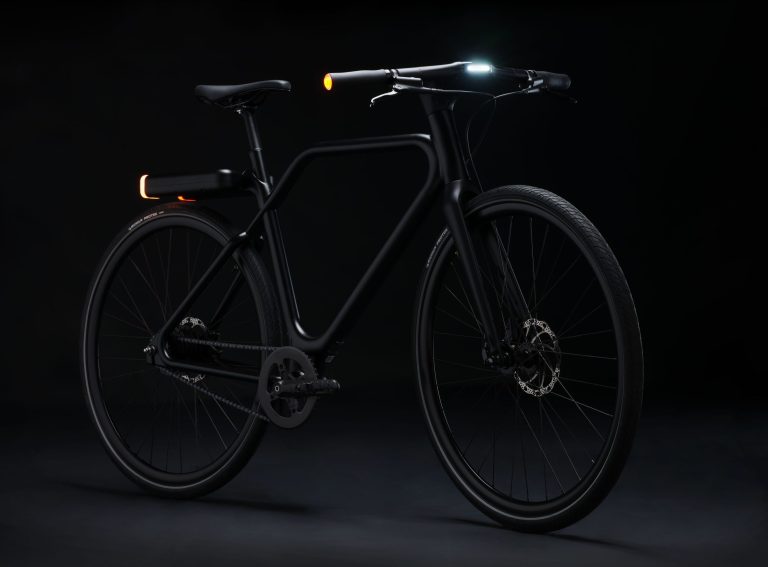Zedify’s administration announcement has sent ripples through the UK’s green logistics industry.
The news came last week after Zedify – one of the UK’s largest cargo bike delivery networks – couldn’t raise the funds it needed to continue operating.
Currently, Zedify’s Cambridge and Edinburgh logistics hubs remain operational, along with Bristol which is operated by a different legal entity. However, operations have been ceased at Zedify’s remaining seven hubs by the independent advisory firm Interpath which is handling the insolvency.
“The news of Zedify entering administration is truly devastating. My thoughts are with Rob and the entire team who are genuine pioneers in the green last-mile delivery space,” Rich Pleeth, Co-Founder at British sustainable logistics provider Fin, told Zag Daily.
Speaking on the wider landscape, he added: “Sustainability has a price, and it’s a price that needs to be valued and prioritized by both consumers and brands. The race to the absolute bottom on price, with sustainability as a mere afterthought, is a self-defeating cycle. We need a fundamental shift in mindset.”
Zedify’s current position
Two Joint Administrators from Interpath have been appointed to handle the insolvency.
With operations ceased at seven of Zedify’s logistics hubs, 105 employee redundancies have been made. 38 employees have been retained at the Cambridge and Edinburgh sites whilst Interpath explores the future of these hubs.
“Well this is a founder’s worst nightmare, when everything comes crashing down,” Rob King, CEO of Zedify, said on LinkedIn. “I have been lucky to have gone on this journey with some incredible people. Many of those will now be looking for a new role this week and I will be highlighting their skills and energy – I would love your help in trying to find them a good home for their next venture.”
E-cargo bike courier firm Pedal Me has reached out to former Zedify employees as it looks to hire 25 more riders over the next month.
CEO and Co-Founder Ben Knowles told Zag that “everyone rides” remains the guiding principle for Pedal Me employees but additional opportunities exist, such as bike maintenance and workshop staff, operational staff and customer service staff.
Steve Absolom, Managing Director at Interpath and Joint Administrator of Zedify’s insolvency, said: “We understand news of the Company’s insolvency will be devastating to its team of employees. We’ll endeavour to provide support to those impacted by redundancy, including assisting them with claims to the Redundancy Payments Service.”
Interpath Associate Director Ravi Patel added: “Zedify was considered a pioneer within the logistics market, being the UK’s first cargo bike delivery service with a zero-emission, last-mile delivery model.
“We are working to explore all options and are seeking buyers for the business and its assets, including its fleet of electric bicycles and their associated intellectual property, as well as the Zedify brand.”
The insolvency follows a long list of successes for Zedify over recent years. Last December, the green logistics firm launched its tenth logistics hub in Birmingham and raised £4 million to expand its network in the Midlands just months before that.
Zedify, which works with retail giants like Zara and Hello Fresh, also announced its partnership with major courier management solution THG Fulfil at the end of last year.
Commenting on the news, CEO of Pedal and Post Christopher Benton, said on LinkedIn. “[Zedify has] done an incredible amount for the industry and helped lead it and develop it as pioneers, reaching for the scale that many of us only dream of achieving.”
A wider industry take
Reflecting on the larger logistics landscape, Christopher told Zag: “This industry is difficult to make money in and when you’re a more ethical employer, labour costs are higher. Although cargo bikes are more cost-effective to operate, it’s a fine balance to make it profitable.”
Ben from Pedal Me also points to the ethics of operating in the last-mile delivery space, where “differentiation is key” in standing out amongst more unethical players.
“Following on from the Deliveroo ruling at the end of 2023, there’s been a severe removal of checks and balances to prevent modern slavery and the escalation of modern use in delivery,” Ben said. “If you’re competing on price, you’re going to struggle against modern slavery enabled logistics and tax avoidance enabled by the gig economy, even with the power of cargo bikes.
“This effect is visible and obvious in hot food delivery because it’s happening on the street. If it’s happening there then damn sure it’s endemic in the more hidden bits of logistics.”
Ben therefore believes green logistics players must provide highly differentiated offerings which adds unique value to their customers. For example, with high on-time rates, thermal boxes for hot or cold food delivery, complete logistics services including fulfillment from base, and complete logistics planning using high-tech AI-enabled software.
However, providing a full package and unique add-ons should not come at the expense of a lean business, Ben says.
“In a sector where you’re competing with tax-dodging, modern slavery using competitors – you need to be super lean with the vast majority of staff hours focused on revenue generating activities.”
Though the future of Zedify is uncertain at this point, one thing the industry is sure of is the mark that Zedify leaves on British logistics.
“Zedify were pioneers in this space and were attempting this at scale. On this occasion it hasn’t been successful, but do I still believe it can be done? Absolutely,” Christopher said.
Rich from Fin added: “Despite this setback, the future of last-mile delivery is undoubtedly greener. We’ll continue to see more and more e-cargo bikes on our streets, and for that, we owe a significant debt of gratitude to Zedify.
“They pushed the boundaries of what was thought possible back in 2018, and their vision will continue to inspire and shape the industry.”




